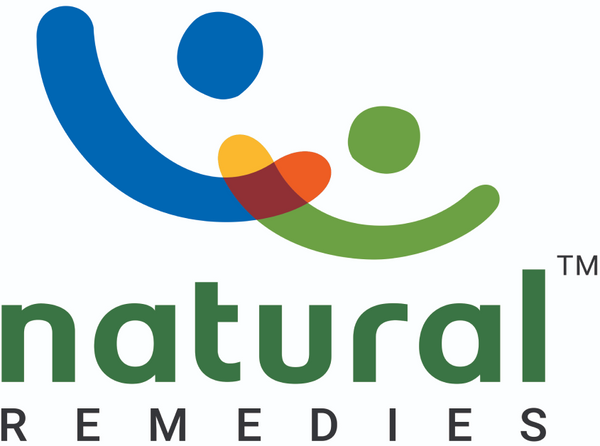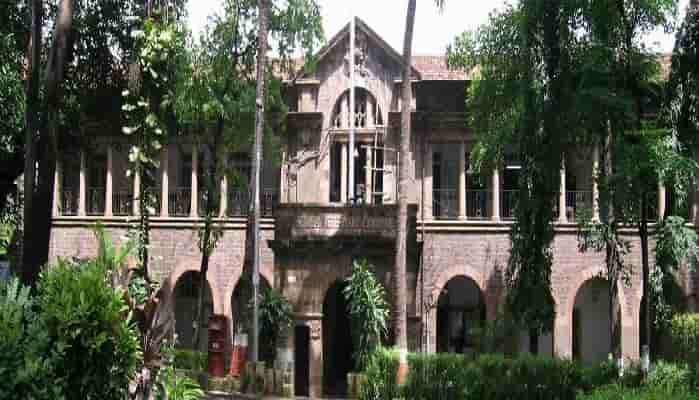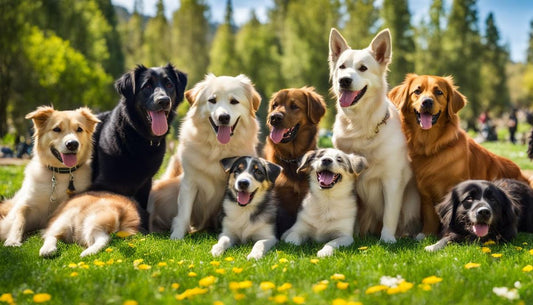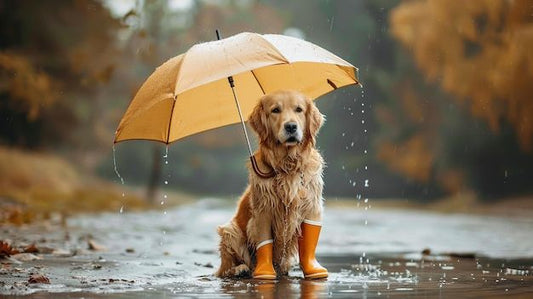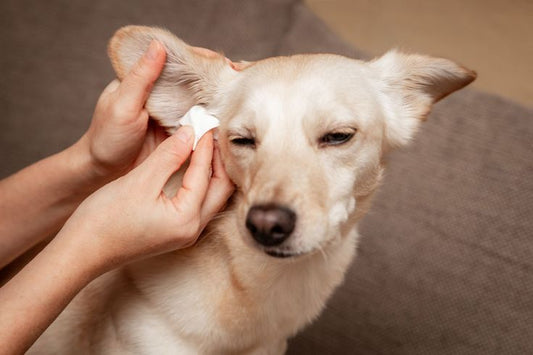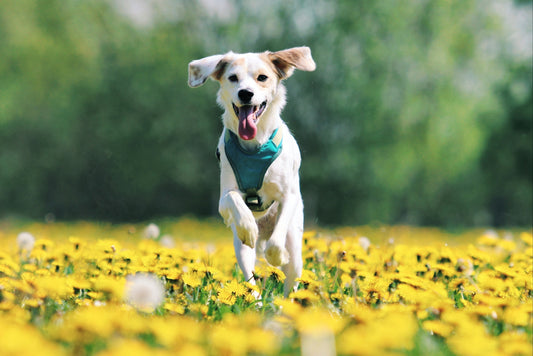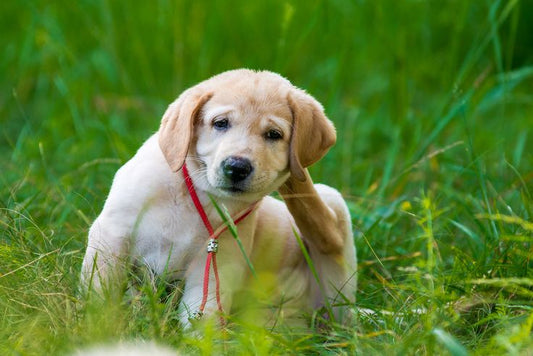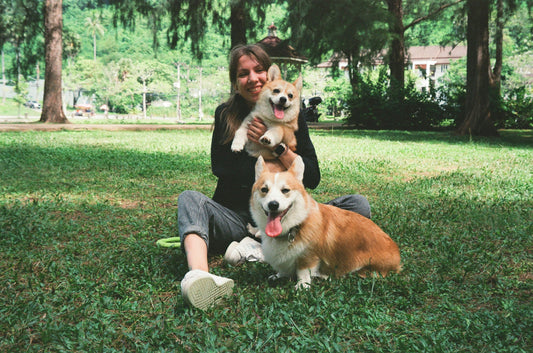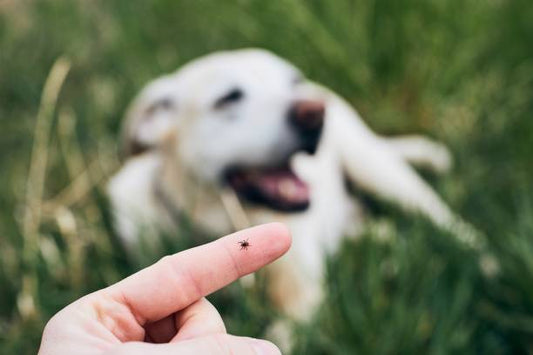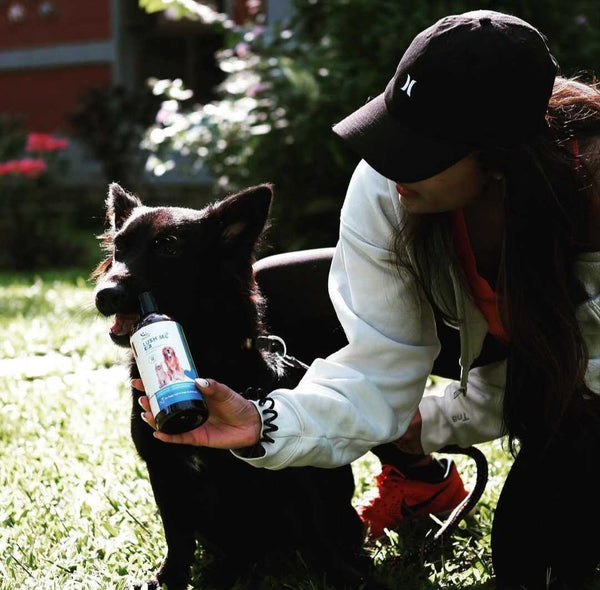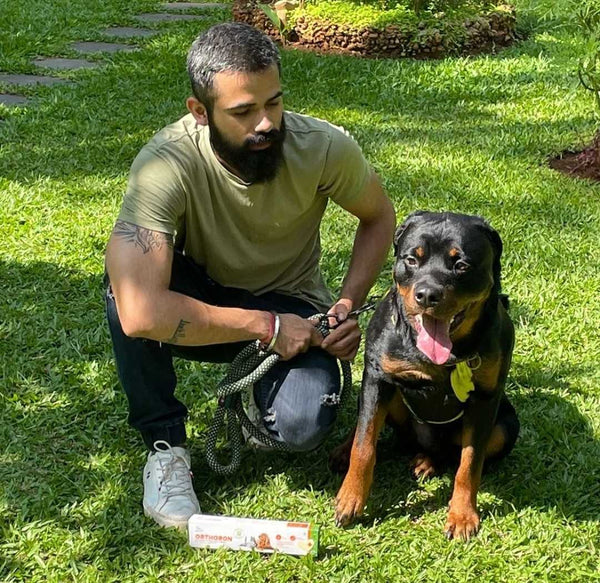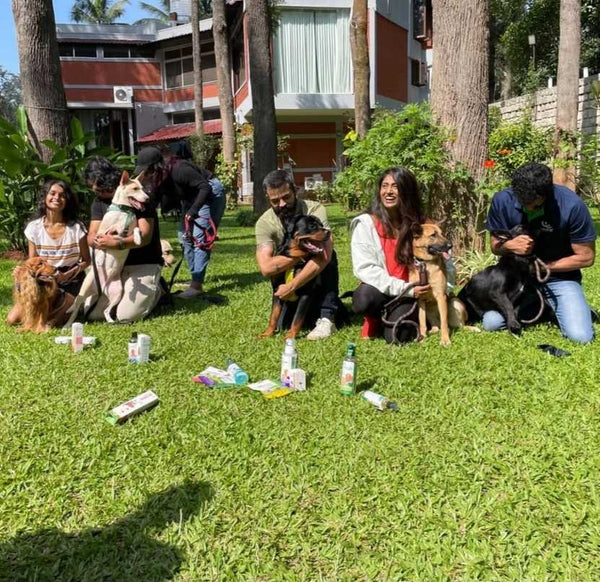
Table of Contents
- Department of animal genetics and breeding
- Department of animal nutrition
- Department of animal reproduction, gynaecology & obstetrics
- Present staff position
- Department of livestock production & management
- Department of livestock products technology
- Department of poultry science
- Department of veterinary & animal husbandry extension
- Department of veterinary anatomy & histology
- Department of veterinary biochemistry
- Departments of veterinary clinical medicine, preventive medicine & nuclear medicine
- Department of veterinary microbiology
- Department of veterinary parasitology
- Department of veterinary pathology
- Department of veterinary pharmacology and toxicology
- Department of veterinary public health
- Department of veterinary physiology
- Department of veterinary surgery and radiology
The year 1886 marked the establishment of veterinary education in our nation with the inauguration of the Bombay Veterinary College at Parel, Mumbai with Prof. J. H. Steel, who can be considered as the father of Modern Veterinary Education in India as her first principal. The College can be justifiably deemed as the Mother College and she has grown from a diploma awarding institute to a seasoned College imparting undergraduate and post graduate courses in all branches of veterinary and animal sciences.
Bombay Veterinary College now rechristened as the Mumbai Veterinary College has contributed immensely in the development of livestock sector not only in India but across South East Asia. Imparting veterinary education is the primary mandate of the institute and VCI minimum standards of education is implemented for the Undergraduate (B.V. Sc. and A.H.) and ICAR common syllabus for the masters (M.V.Sc.) and doctoral (Ph.D.) degree programmes respectively with well-established and thriving Veterinary Clinical Complexes at both the Parel and Goregaon campuses. The 30 acres ILFC at Goregaon offers hands-on training in livestock and poultry management for the students.
The College showcases a noteworthy symbiotic relationship between a government college working in tandem with a NGO, the Bai Sakarabai Dinshaw Petit Hospital for Animals of the Bombay Society for Prevention of Cruelty to Animals (BSPCA), which is one of the largest animal hospitals in the world having an in-patient capacity of more than 300 animals with in house pet kitchen and large animal feeding systems. A few noteworthy achievements include the country’s first Blood Bank and Coagulopathy Laboratory, country’s first and world’s 14thVeterinary Nuclear Medicine Center, Cardiovascular Unit, Dialysis Unit, Laparoscopy Training Centre, Endoscopy Unit, Neo Natal Unit, Veterinary Forensic Laboratory, Genetic Investigation Laboratory and State-Of-Art Referral Laboratory for Testing Chemical Residues in Animal Origin Food.
The College has been in fore-front of research and has implemented a number of research schemes sponsored by national agencies like, IGMR, DBT, DST, ICMR. The College has also successfully completed a number of research and development schemes sponsored by leading international industries, such as, Bayer Animal Health (Germany), Evialis (France), Provimi (Belgium) and Novus International (USA). It also acts as the trouble shooting agency for the problems pertaining to this sector. Mumbai Veterinary College can claim a just pride in seeing that the seeds of the Veterinary Science it had sown a hundred and thirty two years back, has developed into a huge tree giving out numerous branches of specialization in various aspects of livestock industry enabling the veterinary profession to contribute to the national progress on a large scale.
Department of animal genetics and breeding
The Department of Animal Genetics and Breeding, Mumbai Veterinary College is involved in U.G., P.G. and Ph.D. teaching, research and extension activities since 1948. The department has established a well-equipped “Genetic Investigation Laboratory” during the year 2010-2012 under Rashtriya Krishi Vikas Yojana (RKVY) funds Rs. 178 lakhs. The prime objective of the said laboratory is to screen breeding animals for cytogenetic as well as monogenic disorders and prevent affected animals from breeding. Till date more than 1500 animals were screened for cytogenetic and monogenic (BLAD, DUMPS, FXID, CVM, Citrullinemia) disorders and detected Holstein Friesian breeding bull carrier for BLAD defect while, classical chromosomal abnormality (8;29 Robertsonian Translocation) in Gaolao cattle. Prevention of such defective bulls from breeding has saved huge economic losses to animal husbandry sector of Maharashtra and also contributed in strengthening of the Gaolao cattle conservation programme. This department has also completed externally funded projects of Rs. 93.00 lakhs and identified the probable molecular markers associated with the productivity of various livestock species. A workshop on “Genetic Improvement in cattle and Buffalo” in year 2005 was successfully organized by this department and submitted an action plan for the development of infrastructure for genetic improvement of cattle and buffaloes in Maharashtra State. Besides the routine genetic testing of breeding animals, currently department is conducting research on milk genes in indigenous dairy cattle and fecundity as well as growth genes in Osmanabadi and Konkan Kanyal goats. This department has initiated training programs on livestock farming in 1996 and about 1852 farmers. Staff members and students of this department received national and state level awards for their contribution in the scientific and extension work. Recently the staff members of the department were awarded with “Active Camel Research Scientist Award 2020” by Camel Publishing House for their excellent contribution in Camel Research during Covid 19 pandemic period.
Department of animal nutrition
The Department of Animal Nutrition was established in the year 1960 as an independent Department in Bombay Veterinary College under University of Bombay. Postgraduate programme leading to M. V. Sc degree was instituted in 1968 and until now 111 students completed M.V.Sc. degree. The Ph.D. degree program was started in 1978 so far 11 students have completed Ph.D. degree in Animal nutrition from this department.
The AICRP Scheme was started from 1989 under VII five year plan sponsored by ICAR. Under the scheme, work on various agro-industrial byproducts and slaughter house waste was undertaken as animal feed under ensiling condition. Under Network Programme the by products were tried as complete feed for growing calves in mash form. The scheme was then continued as AICRP on “Improvement of feed resources and nutrient utilization in raising animal production”, under this AICRP the work on balancing of ration for medium yielding buffaloes under field condition was undertaken. The state government sponsored (MLDB) scheme on “Assessment of Mineral profile in relationship of animals, soil, feed and fodder in State of Maharashtra for improvement of Livestock production potential” was completed in year 2017. Under this scheme the mineral status of animals, feeds and fodders and soil from Konkan region was studied.
The staff members regularly participate in the training programme for Livestock Development Officers / supervisors of State Animal Husbandry department, livestock farmers and educated unemployed youth organized in the college. The department also collaborates with feed industry and conducts agency funded trials regularly.
Department also offers services like estimation of proximate principles and minerals from feed/fodder samples received from the farmers and private company on payment basis at nominal rates.
From the establishment of Maharashtra Animal and Fishery Sciences University, Nagpur, on 3rdDecember 2000, total 19 Research Recommendations were approved in Joint Animal Sciences Research Councils from Department of Animal Nutrition, Mumbai Veterinary College, Mumbai.
Department of animal reproduction, gynaecology & obstetrics
The Department of Animal Reproduction, Gynaecology and Obstetrics (ARGO) was established in the year 1958, the Professional chair was credited and occupied by the Doyen of A.I. & Cattle sterility scheme of the then Bombay State, Dr. C. R. Sane.
The Department of ARGO imparts training in Obstetrics, Gynaecology, Andrology and Artificial Insemination for the Undergraduate, postgraduate & Ph.D. students. The Undergraduate courses are conducted in the Fourth Professional Year. In addition to the regular laboratory work; clinical cases at TVCC, hands on training at Instructional livestock Farm complex, the students are imparted training in the examination of genital organs at Deonar Abattoir where on an average 300 animals are presented per month for examination. This is the unique facility available for undergraduates and postgraduates.
The academic staff of Department along with PG & Ph.D students regularly visits various Cattle Breeding Farms in and around Mumbai and takes part in the sexual health control programme which includes pregnancy diagnosis, treatment for infertility, estrus synchronization, pre-partum and post-partum care of animals etc. and routine gynaeco-clinical cases at SPCA hospital and referral clinic at the department. This generates material for post graduate research, receipts and also gives confidence to postgraduate students to work independently. The staff members attend infertility camps arranged at rural areas under “Reproductive Disorder Management Cell”.
Since 1961 so far 142 students have obtained their Master’s degrees (M.V.Sc.) and 17 Doctrol degrees (Ph.D.) More than three hundred and fifty research articles have been published in various Research Journals and have been read in National and International Seminars, Symposium. Faculty of this department is regularly invited for presenting lead papers in national congress, seminars and give lectures in workshops arranged for veterinarians and farmers training programme.
The outcome of the vast teaching and research experience of staff members has led to publishing comprehensive textbook on “Reproduction in Farm Animals (Theriogenology)” in 1982. Second edition of Textbook on “Reproduction in Farm Animals” was published in the year 1994 with addition of 4 new chapters and latest research publications,
This department has organized 3rdAll India Symposium on Animal Reproduction in December 1981, 1stAsian Congress on Animal Reproduction in December 1985 and Buffalo congress in the year 2006.In collaboration with Alumni Association of Bombay Veterinary College department organizes “Dr. C. R. Sane oration” from year 2011 on 12thMay. Till date 11 Orations have been delivered by eminent scientist from field of veterinary science.
This department has played leading role in establishing the Indian Society for the Study of Animal Reproduction (ISSAR) under dynamic leadership of Dr. C. R. Sane who also happened to be founder President of ISSAR. The Indian Journal of Animal Reproduction, of ISSAR was published with the key role of this Department for a decade after its inception. ICAR, New Delhi accorded sanctioned for ‘Network Programme on Embryo Transfer Technology in Animal Production” during VIII Five year plan (1992-97). In addition, three ad- hoc schemes almost of about 40 lakh were sanctioned by ICAR in the year 1998. A scheme under RKVY for training field
veterinarians on various modern reproductive techniques including ultrasonography was sanctioned in 2014-17. In 2017, under RKVY scheme to Strengthen TVCC modern equipment like vaginiscopy, neonatal care unit were purchased which are common facilities for department and TVCC.
This department regularly imparts trainings to LDOs on Ultrsonography in Animal Reproduction & Artificial Insemination. More than 500 LDOs have been trained for ultrsonography. Trainings for dog breeders on Reproductive management in canines are also arranged routinely. During lock down Online Trainings were conducted for farmers.
The department offers consultation to dairy farms and companion animals for fertility management which include ultrasonography in cow, buffaloes, sheep, goat, bitch, cat, vaginal cytology in companion animals, semen evaluation in dogs, large and small ruminants, A.I. in bitches and large animals, P.R. examination in large animals for Pregnancy diagnosis, infertility and reproductive disorders and vaginoscopy in large and small animals, obstetrical interventions in all species at nominal charges. More than thousand cases are referred to this department for Reproductive Consultation generating receipt close to 10 Lakhs per year which helps in funding research of Masters and Ph.D students.
The thrust research areas on which the department is presently working are different Canine and feline Fertility Management, enhancement of postpartum reproductive efficiency to increase the conception rate in bovine and Bull Fertility Management, Reproductive technologies in goats.
Present staff position
Sr. Name of Staff Designation E mail
1 Dr. S. U. Gulavane Professor (CAS) In charge & Associate Professor
vetsarita@hotmail.com
2 Dr. R. J. Chaudhari Assistant Professor rjchaudhari@yahoo.com
3 Dr. S. M. Gaikwad Assistant Professor sandeepvet@gmail.com
Department of livestock production & management
The Department conducts under graduate, post graduate and Ph.D. course and research program for PG and Ph.D. students. Department also conduct dairy and goat farming training for the unemployed youth, farmers and entrepreneurs in and around Mumbai and Maharashtra. Also, department regularly celebrate the world anima day.
Department completed research projects on conservation of buffalo germplasm in around Mumbai region which was the initiatives for the dairy farmer for taking care of the male buffalo calves. Hydroponic technology for conservation of green fodder and other departmental research projects. Departmental innovative projects like advance method of cleaning surfaces of animal houses and biodiesel preparation from the livestock waste.
Notable Achievements from the Livestock Production & Management department Total 72 post graduate and 2 Ph.D. students passed out and joined in different department in the Maharashtra and other state. Staff members from the department attended different national and international conferences and present papers in different conferences.
Department of livestock products technology
Established in the year 2004, the Department of Livestock Products Technology has travelled a long distance on continuous path of progress. The Department is engaged in teaching for undergraduate students and teaching and research for postgraduate students. Besides teaching, the Department is constantly engaged in extension activities such organization of training programme on milk and milk Products and meat and meat products, field training and demonstration for entrepreneurs and farmers which has helped various entrepreneurs and farmers to start their own ventures. The Department is also engaged in conducting entrepreneurship development programme for undergraduate students which aimed at development of entrepreneurial skill for self-employment. The Department is conducting cutting edge research in field of both milk and meat and till now fifteen postgraduate students have completed M.V.Sc. from the Department. The M.V.Sc. students have developed several advance techniques such as edible films for extension of shelf-life of meat products and milk products, indicator sensor for monitoring meat spoilage, development of nanoparticles for extension of shelf-life of meat products etc. Various milk and meat products viz. khoa, paneer, srikhand, lassi, chaas, dahi, yoghurt, frozen dairy products, sausages, nuggets, meat ball, enrobed meat products, kebab etc. are also prepared in the Department. Dairy entrepreneurs
Dairy entrepreneurs s undergoing training on “Milk Processing and Value Addition” during March 2020
Celebration of World Milk Day 2018 at College Farm
Dr. V. H. Shukla, Assistant Professor, Department of Livestock Products Technology, Mumbai Veterinary College, Parel, Mumbai
Department of poultry science
The Department of Poultry Science was established in the year 1975 under the able leadership of Dr. M. V. Kulkarni and grew under the guidance of Dr. B. V. Rajmane. From 1995 onward the department was headed by Dr. A. S. Ranade who brought lots of laurels to the department. Currently, Dr. A. S. Ranade is the Professor and University head of the Department of Poultry Science and holding additional charge of Associate Dean of Mumbai Veterinary College. Hence, Dr. D. N. Desai, Assistant Professor, is holding the charge of Sectional Head for the Department of Poultry Science. Dr. P. E. Avari is Assistant Professor at the department. Right from the beginning the Department was providing undergraduate and post-graduate training programs. The department has so far produced a total number of 100 M. V. Sc. and six Ph. D. students and all of them are serving the poultry industry at key positions as well as higher administrative positions in Government.
Broiler & Layer Sheds at ILFC, Fodder plot, Goregaon
Incubator & Poultry Equipments used for PG & UG Teaching
Students Taking Hands On Experience in Broiler Shed
Besides these the department has been engaged in various activities which supported the growth of Poultry sector in India. Short term poultry training courses for farmers and new entrepreneurs, ‘earn while learn’ schemes for the students, entrepreneurial training programs for the students, applied research necessary for the growth of the industry, foreign collaborations to get the insight of the poultry industry in the developed world and its thoughtful application under Indian conditions, proved to be basic pillars for the strength building of the department concurrent with the industry. The Department has completed 14 agency research schemes since the year 2000. The department has successfully completed International collaborative research scheme with Novus International from 2008 to 2011. The Department has established ‘Experiential Learning Unit in Broiler and Layer Production’ with ICAR grants in 2011-12. Faculty members of the Department of Poultry Science are regularly attending programs for the farmers and entrepreneurs from the poultry industry to address the issues. They are also felicitated for recognition of their work in the field of poultry science.
Department of veterinary & animal husbandry extension
ACTIVITIES:
❖ Department is involved in teaching undergraduate and post graduate courses. ❖ MVSc research is conducted by taking surveys of dairy, poultry, goat farmers to assess their knowledge regarding animal welfare, good dairy farming practices, impact of training conducted, women SHGS attitude towards poultry farming and to assess ICT tools used by livestock farmers during pandemic.
❖ Publication of articles for newspaper, magazines in local language .
❖ Delivered radio talks.
❖ Participation in exhibition, rallies .
❖ As NSS In-charge various activities like vaccination and animal health, treatment camp, cleanliness are conducted in adopted, Unnat Bharat Abhiyaanvillages .
❖ Organisation of animal husbandry trainings for farmers, rural youth, women SHGs
❖ Preparation of booklets, folders, leaflets in local language for the farmers which are distributed free of cost.
RECENT ADVANCES:
❖ Use of ICT and other latest technology while teaching undergraduate and post graduate students
❖ Use of latest statistical tools for research
❖ Establishment of ATIC (Agricultural Technology Information Center) through which recent advances in animal husbandry are communicated to the farmers.
❖ Farmers Mobile Advisories are regularly sent through whatsapp, youtube, SMS
❖ Publication of e-leaflet, booklet which are distributed through social media.
NOTABLE ACHIEVEMENTS:
❖ Dr.Bhanotra A.K., Assistant Professor received Women Extension Scientist Award & Best Poster Presentation in the 3rdNational conference of Society for Veterinary & Animal Husbandry Extension held at G. B. Pant University of Agriculture & Technology, Pantnagar, Uttarakhand.
❖ M.V.Sc students are selected in state services as Livestock Development Officers through State Public Service Commission. Also, two M.V.Sc students passed from the college have completed doctorate degrees from NDRI and IVRI.
❖ Both the academic staff are working as reviewer for various NAAS rated journals.
❖ In COVID-19 pandemic 07 online trainings of 3-5 days duration have been conducted and e certificates have been awarded to the farmers.
Department of veterinary anatomy & histology
Besides Teaching, Research & Extension activities, staff is engaged in Horse Riding Clinic for final year B. V. Sc. & A. H. students, Scholarship work of UG, PG & Ph.D. students, Academic I/C of P.G, Hostel monitor and Mantralaya work related to MAFSU.
The staff is related to biotechnology work in relation to “Generation of Parthenogenic embryos as a source of autologous embryonic stem cell line in sheep”. Notable achievements by the faculty includes work in organ preservation in dead animals (Willed-body Program) like Taxidermy, Plastination, Formalin fumigated Dry Specimens, Luminal cast, Skeleton preparations.
Department of veterinary biochemistry
Present staff position
Name Designation Educational qualification
Teaching / Research & Extension Experience
Dr S.H. Dalvi Associate Professor & Sectional Head M.V.Sc., PhD & PGD SRD 25 years
Dr R.B. Ambade Assistant Professor M.V.Sc., PhD 13 years
Achievements of the department since its establishment as a separate department Teaching of undergraduate, postgraduate and PhD students
❖ No. of M.V. Sc students passed: 08
❖ No. of PhD students passed: 03
❖ No. of Publications of the department in reputed journal: more than 25
Research projects ongoing: 03
❖ Studies on, prevalence, clinico-pathology and prognosis associated with major electrolytes disorders in dogs and cats
❖ Studies on serum thyroid hormones and lipid profile levels in adult Osmanabadi bucks and its changes during transportation stress
❖ Validation of Electrochemical biosensor technique for the estimation of blood glucose in buffalo
Established Central Instrumentation Facility for the institute
Routine analysis of samples for biochemical investigation and diseases diagnosis Organization of Training programmes for LDO and Veterinarians
Departments of veterinary clinical medicine, preventive medicine & nuclear medicine
Medicine Department is one of the oldest departments in the College and was established at the inception of this institution in August 1886.
The Department provides gratis technical services to the India’s first biggest affiliated animal hospital “Bai Sakarbai Dinshaw Petit Hospital for Animals”. The faculty and the post graduate scholars of the Department provide gratis technical services to the various Medical wards (General, Gastro, Distemper, Rabies, Cattle, Horse, etc.) of the hospital.
In addition, the Department provides referral services to animal patients of Mumbai and adjacent states. The Department of Clinical Medicine is in forefront of education, research and clinical services.
Teaching methodologies have been updated by using Audio-visual aids in the form of multimedia, virtual classroom, intranet etc. which aid in thorough teaching. The Department of Medicine has formulated:
❖ The department has established the country’s first animal blood banking unit with facility of component separation. This was possible under ICAR’s revolving fund scheme. A number of research projects in this area have been completed. Methods for quick blood grouping in domestic and pet animals have been developed. Blood component therapy to treat diseases, such as, DIC, thrombocytopoenia have been developed in the Department of Medicine. The Unit is a self-sustaining facility.
❖ Nuclear Medicine Centre: The Centre has been established with the financial support from the Department of Atomic Energy, Government of India. This is country’s first Veterinary Nuclear Medicine Center that has facilities for scintigraphy imaging. The Center offers diagnostic services for pet and other domestic animals. A number of research projects in this area have been completed.
❖ New Tests for Detection of Hypophosphatemia: The Department has adopted the conventional method of serum phosphorus estimation to a quick barn-side test. The test has been named BOVET-Rapiphos test and is based on visual comparison of colour developed in Fiske Subbarrow reaction with known standard.
❖ New Tests for Detection of Sub-clinical Mastitis: The Department of Medicine of the College has developed a quick animal-side test for detecting cases of sub-clinical mastitis in bovines that is based on detection of anti-proteases in milk.
The department regularly organizes free anti-rabies Camp on World Zoonoses Day, World Rabies Day etc. The Department has numerous super specialty units like the Dialysis Unit, Cardiac Unit, etc.
FACILITIES:
In vivo facilities:
∙ Single head millennium gamma camera
∙ eNTEGRA work station
∙ Dose calibrator
∙ 99Mo-99mTc generator / solvent extraction
In vivo diagnostic scintigraphy facilities:
∙ Thyroid scintigraphy for Uptake, nodule detection
∙ Renal scintigraphy for GFR
∙ Three Phase bone scan for primary and secondary metastasis ∙ Hepatobiliary scintigraphy
∙ Trans-colonic scintigraphy for detection of extrahepatic shunt ∙ First pass study for shunt
∙ LVEF / MUGA study
∙ Gastric emptying and reflux
∙ Scintigraphy to detect space occupying lesions
∙ Whole body scan
∙ Vascular patency / thromboembolism
∙ Testicular scintigraphy
Research facilities are also available for scintikinetic studies in laboratory animals. ∙ New drug development / Novel drug delivery system
∙ Organ drug distribution studies
∙ Rectal drug delivery
∙ Gastro-retentive study
∙ Targeted drug delivery system evaluation
∙ Nasal to brain drug delivery
∙ Intra-mammary drug release profile
In vitro diagnostic / research facilities:
∙ Radioisotope Laboratory for hormonal assays (RIA / IRMA Assay) ▪ Thyroid Profile (T3, T4, fT3, fT4)
▪ Cortisol assay
▪ Progesterone assay
▪ Insulin assay
Department of veterinary microbiology
The existing Department of Veterinary Microbiology was established first as the Department of Bacteriology in Mumbai Veterinary College in 1943 with Prof. R. N Naikas Bacteriologist. The department achieved the various milestones as first-time studies in India viz. detection of South African Horse sickness virus, isolation, identification and characterization of Gumboro disease virus & Inclusion body hepatitis virus SMAM-1 strain, CPV / AAS / 85 strain, Bordetella bronchosepticaetc.
Till date total 125 MVSc and 10 Ph.D. students completed their degree in Veterinary Microbiology subject. Under Animal Biotechnology, total 13 MVSc students completed their Research. The department has completed many research projects sponsored by ICAR, ICMR, DBT, BARC and has been conducted various agency or industry funded projects. Published >170 national/international research publications, obtained >100 NCBI gene accession nos. The staff of department have contributed in patents and have been received various awards at national and international levels.
The department has separate Bacteriology, Virology, Tissue culture and Animal biotechnology laboratories and Lab. animal experimentation facility. The specialized staff having PhD degree in various fields of Microbiology are working on the thrust area of Rabies, Ranikhet Disease, Brucellosis, Mastitis, and Poultry Mycoplasmosis. The Department of Microbiology is routinely testing samples for some important zoonotic diseases such as brucellosis and rabies. Various diagnostic services are offered along with the rabies antibody titre testing.
Department of veterinary parasitology
The department has contributed to human resource development by producing many MVSc, eight Ph. D. students (5 by research & 3 by course) and conducting trainings for technocrats. Since last ten years, students from other states are taking admissions to PG course through ICAR quota which proves recognition of the department at national level. The department has organized National Congress of Veterinary Parasitology from 5thto 7th January 2011 and this has achieved national recognition. This department has developed a very good parasitic museum at both campuses of BVC which comprises gross helminthic specimens, gross tissue / organ specimens, models, eggs of parasites, slides, posters, charts etc. This department also provides different specimens, slides and other teaching material to other educational institutes of India. The notable achievements are:
❖ Discovery of coccidian species Eimeria bombayansis, E. mundaragi in cattle and Eimeria gokaki in buffaloes.
❖ First report of Trichinella spiralis in pigs in India.
❖ Speciation, binomics of Oribatid mites and first report of their role as intermediate host of Avitellina spp.
❖ Metgenomic profile of pathogens associated with Riphicephalus sanguineus
❖ Prevalence of helminthic fauna of rodents in Mumbai region.
❖ Surveillance of Amphistomes occurring in ruminants in Maharashtra.
❖ Standardization of immunodiagnostic assays for detection of Hydatidosis and Cysticercus cellulosae in food animals.
❖ Surveillance of Ixodid ticks of bovine of all regions of Maharashtra state.
❖ Status acaricide resistance of Riphicephalus microplus isolates of five regions of Maharashtra state.
❖ Surveillance of helminthic infestations of zoo animals of Mumbai Region.
❖ Surveillance of bubaline surra in and around Mumbai region of Maharashtra State and pharmacokinetic studies on trypanocidal drugs.
Dr. Aldaniz Gulinov, Director Animal Husbandry, Ministry of Agriculture Azerbaijan visited this department and was briefed about the activities of the Department.
Glimpses of ‘Goat health awareness and deworming camp’ at Bangoda Pada in tribal area of Thane district during 16thDecember 2017 and 16thFebruary, 2018.
Faculty of the department actively involved in research and various extension activities viz., Goat health awareness camp, faecal examination and deworming in tribal villages.
Department of veterinary pathology
Department of Veterinary Pathology was established in year 1943. During that period, this department was teaching Histology to first year, pathology to third year and Meat Hygiene to the final year students. Dr. K. S. R. Aiyer was the first Professor and was succeeded by Dr. R. M. Kalapesi in 1952. Dr. B.L. Purohit became professor in 1956. On his transfer as Principal of Nagpur Veterinary College; Dr. S. M. Ajinkya took over in 1962 as professor who was succeeded by Dr. P. D. Sardeshpande in 1970. Later Dr. Jalnapurkar handled the dept as a Professor
followed Dr. P.S. Lonkar in 1994 to 2005 then Dr. Mrs. R. S. Nehete handled the charge from 2005 to 2010 followed by Dr. D. P. Kadam till Feb 2012 and Dr. S. D. Moregaonkar from 2012 to 2017. All of them contributed notably for the development of department. Dr. K. V. Joshi, Dr. N. S. Deodhar and Dr. B. D. Survashe who worked in different capacities made by these stalwarts ably supported them. Currently Dr. D. P. Kadam is Inchage professor of the department. Teaching, diagnosis, research and extension activities are the main working areas of the department. The department has rich museum and great collection of slides and specimens of varieties of disease conditions in animals.
In recent years, the department has established the following laboratories for advance research and quality educations to the PG, PhD students.
❖ Clinical Pathology Laboratory: The Department has a well developed clinical pathology laboratory equipped with necessary equipments.
❖Pathology Museum: Department is having a well established “Pathology museum” both at Parel and Goregaon campus which is being used for UG/PG teaching activities and for farmers/ entrepreneurs visit to department
❖Histopathology Laboratory: The Department has a well developed Histopathology laboratory equipped with necessary equipments for manual methods / semi-automatic methods at both the campuses.
❖ Necropsy Room: The Department has a Necropsy laboratory equipped with necessary equipment’s at both the campuses.
❖ Molecular Pathology laboratory: Parel campus of the department is equipped with necessary facilities of molecular pathology work like PCR for postgraduate and doctorate research work. The department is actively involved in offering the various diagnostics and clinical services:
❖ Complete Blood Count in animals
❖ Urinalysis
❖ Biochemical profiling including liver and kidney function tests (LFT & KFT)
❖ Cytological examination of lymph node and bone marrow smear (for tumours)
❖ Histopathological diagnosis of clinical tissue samples
❖ Histopathological processing and diagnosis of tissues from laboratory animals used for Toxicological/research studies from pharmaceuticals, research institutes and colleges
❖ Plan and conduction of various drug trials [private agency trials] in poultry birds
❖ Post mortem examination of domestic animals, poultry and wild animals and birds for disease diagnosis
Department achieved a various notable milestones includes Young Scientist Award, Best Poster Presentation Award, DST Fellowship” JRF, “DST Fellowship” SRF and Ph.D. Research
Grants to various students from different batches. The students passed out from department secured good positions in government organizations and industries.
Department of veterinary pharmacology and toxicology
The department of Veterinary Pharmacology and Toxicology was established in 1961. Post-graduate study programme started in the year 1972. Ph. D. degree programme partly by papers and partly by research has been instituted from the year 2004. So far more than 98 candidates completed M.V.Sc. successfully and three have completed Ph.D. by research and course work. All the Teaching faculties in the department are PhD holders. The Department is having ICAR network project entitled as “Monitoring of Drug Residues & Environmental pollutants”. In addition, the international scheme of German unit of Bayer Ltd has collaborated study entitled as “Flunixin OTC” of total outlay of Rs 40 lakhs. Animal House of Mumbai Veterinary College has received approval as a trader from Government of India, CPCSEA (Committee for the purpose of Control and Supervision of Experiments on Animals) New Delhi, on 08/06/2018.
Department has distributed water purifiers, gumboots, etc to the socially and economically poor SC families under the schedule class sub plan of MDREP scheme.
Department of veterinary public health
Department of Veterinary Public Health established in 1975 is actively involved in Teaching, Extension and Research in the discipline of Veterinary Public Health. The department has established the state of art facilities for the undertaking the quality research in the areas of Zoonoses,Food Safety,Environmental Hygiene,Chemical Residue Analysis and other emerging research areas of foods of animal origin. Based on extensive research carried out by the department, the department has been granted World Bank funded research project for the “Establishment of Western Region Referral Laboratory for the Meat and Meat Product Quality Standards” in 2003 and “Centre of Excellence for Advanced Research on Animal Food Safety” in year 2020. The department has immensely contributed in development of various technologies (16) and successfully transferred to the industries for its commercial use. A total of 128 students (118 PG and 10 Ph.D.) completed their master and doctoral studies in VPH. There are more than 200 research articles has been published in National and International reputed journal and filled 4 patents. As a leading trainer for the development of skilled human resource and the generation of industry-ready candidates, there are several training programs have been conducted. Besides several linkages with Indian meat industries and research institution, the department has also been important part of international MoU signed between MAFSU and Penn State University and Washington State University, USA for the development of collaborative research, undertaking student/faculty exchange programs etc. between these universities.
Department of veterinary physiology
Established in the year 1940 as the Department of Physiology and Biochemistry of Bombay Veterinary College, when an advanced diploma course was started. In 1966 Bombay University recognized the department for postgraduate studies. The department imparts training to undergraduate and graduate students. Graduate studies include academic programs in M.V.Sc. in Veterinary Physiology (84 Masters degrees awarded till date) and Ph.D. in Veterinary Physiology (10 Doctoral degrees awarded till date). Besides the academic programmes, the department conducts basic and applied research and technology transfer in Veterinary and Animal Sciences with emphasis on animal health and production. The department also offers facility of Veterinary Laboratory Diagnostics. The faculty has 280 research publications in National and International journals and has presented 66 National level and 4 International level papers in Conferences / Symposia / Seminars.
OUR TRIUMPHS
❖ Identification of prognostic biomarker in canine mammary tumours.
❖ Recognition of AMH (Anti Mullerian Hormone) as a reliable phenotypic marker for fertility.
❖ Recognition of melatonin as a cryopreservation extender to improve sperm quality.
❖ Isolation and characterisation of BM-MSCs and its therapeutic application to commence cyclicity in anoestrus buffaloes.
❖ Bovine mammary tissue stem cell (MaSCs) and milk stem cells characterization and their role in tumorogenecity in buffaloes.
❖ Early pregnancy prediction (16 days post AI) in goats by PAGs (Pregnancy Associated Glycoproteins).
❖ Early pregnancy prediction (21 – 28 days post AI) in buffaloes (1sttime) by urine PdG (pregnanediol-3-glucuronide).
❖ Bovine growth hormone RIA kit validation.
❖ Milk quality improvement by using toxin binders to decrease AFM1 in buffalo milk.
❖ Interleukin 1β profiling during buffalo gestation.
❖ Fabrication of a new model for determining milk curd tension to evaluate mastitis.
❖ rBST treatment to augment lactation and validation of dairy animal safety.
❖ Inhibin immunisation to improve fertility (buffalo).
❖ Seminal plasma protein assessment in fertility and infertility (buffalo & cattle).
❖ Growth hormone biotechnology to increase milk production (dairy cattle).
❖ Haematological and trace element profiling w.r.t different physiological stages (dairy animals).
❖ Hormonal induction in non-producing & non-lactating cattle for milk production.
❖ Hormone, milk composition & serum metabolites profiling during a complete lactation in bovine.
❖ Humoral immune status profiling (dairy cattle).
❖ Extraction of insulin from buffalo pancreas and heparin from buffalo lungs.
❖ Buffalo immunology (First in the world).
On Going Externally Funded Projects
❖ NAHEP-CAAST, Rs 1800 Lakhs, Dr. S. D. Ingole; Centre of Excellence for Advanced Research on Animal Food Safety.
❖ RKVY, Rs. 499.79 Lakhs, Dr. S. D. Ingole; Strengthening & Modernization of Teaching Veterinary Clinical Complex, Diagnostic Laboratory & Establishment of Training Centre at Bombay Veterinary College.
Analytical Services Offered
Liver Function Test (LFT), Total Proteins, SGOT, SGPT, ALP, Bilirubin, Kidney Function Test (KFT), Creatinine, BUN, Individual Parameters (LFT & KFT), CBC, Electrolytes- Na, K, Cl, Calcium, Phosphorus, Lipase, Amylase and Serum Glucose
Dr. S. D. Ingole, Professor was conferred with J. N. Pandey Memorial Award for Best Poster Presentation in the XXV Annual Conference of SAPI and National Symposium at College of Veterinary Science, Mhow, MP, during December 2016. The award which carries a memento and certificate was presented by Dr. M. L. Madan, Former Vice Chancellor DUVASU, Mathura, PDKV Akola, DDG (Animal Sciences) ICAR, Hon. Vice Chancellor Dr. P. D. Juyal, NDVSU, Jabalpur & Dr. V. H. Rao, President SAPI
Department of veterinary surgery and radiology
The department is providing effective teaching and research for UG, PG and Ph. D students. The Surgical unit at BSDP Hospital for Animals, an affiliated animal hospital provides ample amount of clinical material/cases which helps in hands on training to students for surgical expertise. It also provides advanced surgical procedures for all species of animals. Department is well equipped with modern diagnostic and therapeutic modalities such as endoscopy, laparoscopy, CR and digital radiography. It has well equipped state of art Laparoscopy Training center for Veterinarians and Medicos.
The department completed two RKVY projects, 5 Agency Schemes and its faculty are engaged in research schemes of other institutes such as NIRRH, ICMR, KEM etc. Till date department gave 151 M. V. Sc. and 12 Ph. D scholars and presented recommendations for various anaesthetic and surgical processors to field Veterinarians and private practitioners. The faculty members are resource persons for various national and international institutes and providing technical guidance to various udyans and national parks. Department has organized several health and surgical camps for various species of animals and has an Animal Birth Control Centre for stray dogs and cats. The notable achievements are as below:
❖ Dr. G. S. Khandekar, Professor has been bestowed with Fellowship of ISVS 2018.
❖ Dr. G. S. Khandekar, Dr. S. D. Tripathi, Dr. S. V. Gaikwad and Dr. K. S. Chaudhary along with PG students have Won Gold Medal in Small Animal Surgery session of ISVS 2018.
❖ Dr. G. S. Khandekar, Dr. S. D. Tripathi, Dr. D. U. Lokhande along with PG students have Won Gold Medal in Small Animal Surgery session of ISVS 2019.
❖ Dr. S. D. Tripathi has won Dr. S. J. Angelo Memorial Gold Medal Award for best paper presentation in surgery in ISACP conference 2019.
❖ University Best Teacher Award to Dr. G. S. Khandekar and Dr. D U. Lokhande
❖ Dr. Sarvepalli Radhakrishnan Distinguished Professor Award to Dr. G. S. Khandekar, 2021
❖ Indo-Asian Best Teacher award in Veterinary Surgery to Dr. S. D. Tripathi
❖ Third prize for Best oral presentation WILDCON 2020 to Dr. G. S. Khandekar, Dr. S. D. Tripathi and others
❖ Dr. G. S. Khandekar and Dr. S. D. Tripathi have been awarded numerous appreciation certificates from dignitories and various industrial collaboration.
❖ Dr. G. S. Khandekar and DrS. D. Tripathi have presented Lead Papers in ISVS 2017, 19, ISACP-2020, ISVS Nashik chapter.
❖ Dr. G. S. Khandekar and Dr. S. D. Tripathi Conducting Animal Birth Control Programme for Dogs and Cats in collaboration with BMC
❖ Conducted one of its kind Online training programme on “Basics of Small Animal Laparoscopy” in which more than 3000 participants were involved from all over the world.
❖ Dr. G. S. Khandekar has been appointed as expert for selection and promotion of candidates in various institutes such as BARC, NIRRH, CIRCOT-ICAR and Mahatma Phule Krishi Vidyapeeth, Rahuri.
❖ Dr. G. S. Khandekar has been appointed as expert for thesis evaluation of PG and Ph. D. candidates of various Veterinary and Agricultural institutes.
❖ Dr. G. S. Khandekar has attended three-day international training programme on Spinal Anaesthesia at Bangkok.
❖ Dr. G. S. Khandekar and Dr. S. D. Tripathi have online international Asian Buffalo Congress in Nepal during 25thto 29thOctober 2021 and presented abstracts.
❖ Regularly conducting free Animal Birth Control Programmes for stray dogs and cats during various health camps at Ratnagiri, Waduj, Silvassa, Satara, Lonavla etc.
❖ Regularly Conducting Horse health and Gelding camps at Matheran in collaboration with Matheran Horse association
❖ Established Centre for excellence in Minimal Access Surgery and regularly conducting Laparoscopy training programmes for the students and Staff of MAFSU and other teaching Institutes such as college of Veterinary Sciences, Bikaner, Jabalpur, Ludhiana, Remount Veterinary Corps, ICAR-TEC etc.
❖ Faculty has delivered talks during various training programmes.
❖ Faculty has undergone training at NAARM and attended online webinars and conferences organized by WILDCON 2020, ABC 2021.
❖ Developed State of Art Lecture Hall for laparoscopy training
